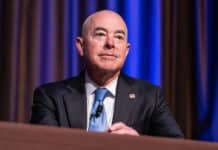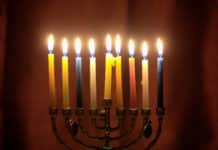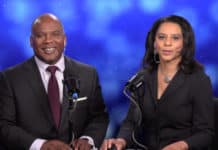College campuses traditionally have strived to encourage free speech and acted as havens for the expression of diverse thought to examine beliefs and values. Many, from ancient philosophers to modern era industrialists, have praised these time-honored functions which they believed serves to benefit the state of mankind.
Recently this historical role has been abandoned. Campuses no longer provide setting for civil forums. Today, campuses more often make the news as scenes of seething confrontations. Civil discourse and scholarly debate are gone, overshadowed by unruly tantrums near ivied halls. Loud chants demean rivals and demand conformity or at least strive to silence voices of opposing thought. Attacks typically target the relatively scarce ranks of conservative students who dare to be identified as such.
And, it’s happening all across the country. These same conditions are present here based on comments from Minnesota college students interviewed for this report.
Politics has fractionalized student groups. New special interests emerge seeking to gain a social foothold. Some even demand safe spaces on campuses, sanctioned zones where individuals can go to be sequestered apart from dissenting discussion and debate. The notion of safe spaces may be a marker for the end of the classical college functioning as a forum for dispassionate inquiry. The idea of coddled harbors surrenders the traditional ideal of students working to find ways to coexist with each other.
(The Center for the American Experiment will air a movie on the state of college campuses, No Safe Spaces)
How are these dynamics playing out on Minnesota college campuses? We interviewed conservative Minnesota students individually to learn about their campus experiences and perspectives. Across the board, students who publicly identify as conservatives report that they have come under attack for verbalizing their beliefs from liberal peers, and even liberal professors, some students said.
It’s the Mark of an Educated Mind to be Able to Entertain a Thought without Accepting It Aristotle
Campus Life, Free Speech and Safe Spaces
Megan, a political science and history major at the U of M, is a member of a highly visible conservative student group on campus and she writes for a conservative news blog.
“Intimidation is a big thing…trying to pare down conservative voices,” she said in a recent interview. Would-be intimidators are mostly students, but at times professors also weigh in against students who espouse conservative ideals. Out of approximately 200 groups registered on campus, maybe five are conservative, she estimated. Identified conservatives are a minority, though the ranks could be larger because some students simply choose not to express their views publicly.
What about safe spaces on campus? “Every space (on campus) should be safe because it’s publicly funded…it’s a land grant school.
“Safe spaces don’t fit our diversity of opinions … (to find solutions) we should encourage disagreement instead of (creating) an echo chamber.” Free speech suffers in such a stifling, protective environment. “It’s concerning,” Megan said.
John, a junior economics major at the U. of M., in a separate interview echoed Megan’s concerns. Graffiti annually mars conservative message panels displayed on the Washington Avenue Bridge connecting the East and West Banks. Hate mail dogs his group on social media sites, John said.
“It’s 100 percent indoctrinated students,” he said. “The professors indoctrinate. (Students) are being taught that the means justifies the ends.”
People who need safe spaces are “children who were sheltered in youth.” Teachers have bent to the demands of “smaller, rowdy and demanding groups that unfortunately have taken over much of the rhetoric on college campuses …vocal groups that get their way … the faculty capitulates to their demands.”
John and others said professors shape assignments expecting to see liberal leanings in academic writing.
“A lot of papers in college have a liberal tilt. If I didn’t write from a liberal standpoint, it would negatively affect my grades. One professor provided John’s class with a resource list of liberal content suggested for completing an assignment. “That’s even more dangerous than the crybabies and liberal teachers.” Some students consciously fake liberal leanings in assignments to game the grading system.
Safe spaces and liberal expectations “are antithetical to what a college experience should be…I believe that college should be one big space to articulate one’s ideas. Free speech labeled as hate speech … (is pushed out) of the mainstream, and that’s very purposeful,” John concluded.
Karly, a Saint Thomas junior pursuing a double major in political science and economics, said a conservative student group at her school totals as many as 100 members. She displayed her conservative bent from the beginning of her freshman year, so she’s willing to weather any negative comments from others. “I’m pretty strong-minded – the conservative girl on campus.”
Conservative organizations gather members from across different campuses, acquainting conservative students with their counterparts at other schools, she said. During the hearing for Supreme Court nominee Brett Kavanaugh, Karly’s group attended an off-campus event billed as a non-partisan debate club. (Students from other schools) “invited us, then called us gender-traitors. It’s disgusting…but we expect it. We’re to the point where when they say it, it’s funny.”
In her experience, disparaging remarks come exclusively from other students, Karly said, and usually employ stereotypical jibes that broadly label all conservatives. “I definitely know I’ve experienced bias from teachers,” she said, citing an anti-Trump lecture from a freshman English teacher. But she added that teachers at her private school are cautious about taking strong political stances.
“Safe spaces also have free-speech zones. It’s unconstitutional – students should be able to speak anything you want, anywhere, whenever (on campus). Safe spaces put students in a position where they can run and hide, rather than learn how to have a conversation with someone who disagrees with you.
“There’re no safe spaces in the real world, the workspace. It’s a hideout,” Karly concluded.
“Strong minds discuss ideas, average minds discuss events, weak minds discuss people.”
Socrates
Kyle, a junior political science major at Saint Olaf, described his school as “extremely liberal school and there’s a lot of pressure not to be conservative.” Conservatives are a target, he said.
“Conservatives fear physical retaliation for voicing their opinions, and that’s largely ignored by campus administrators and the media. The majority of the threats conservatives face (on campus) are ideological. Ninety percent of the time, the problem you’re facing is your professor downgrading you, and your peers thinking you’re a racist. There’s a small percent of the time that people will get physical… outside the classroom.” Settings ripe for confrontations are on the quad or at parties. “That leads people not to attend those social gatherings,” enforcing social isolation.
What do campus safe spaces represent to Kyle? “Basically, fascism. The left is masquerading as the party of freedom. They set up spaces where certain ideas are not allowed to be expressed. Anybody who violates those speech guidelines is deemed anti-whatever and is socially ostracized.
“Safe spaces are when a campus decides that an area is going to be designated and limited—it’s an area where only specific individuals can go, or only specific speech can be used, or only specific ideas can be expressed,” Kyle said.
“That implicitly privileges a certain group of people. Yes, they’re doing it under the auspices of helping a disenfranchised group… setting up a safe space is giving them a level of privilege that is unequal to everybody else. I think that’s wrong.”
Kyle added, “The only thing you can’t say in a safe space is something conservative.”
Jesse is a graduating senior who attended Southwest Minnesota State University in Marshall with a double major in history and political science. Law school is in his future.
He said there were instances when people at SMSU tried to intimidate him for his conservative beliefs, though he added that his rural alma mater, located away from large cities, is more conservative than schools in metropolitan areas. However, his comments on liberal influences echo those of other students interviewed.
“There are certainly institutional mechanisms put into place by teachers to stifle conservative views.” He cited instances when professors spoke against the candidacy of Donald Trump.
“For me, I get a feeling of discomfort with specific professors in specific classrooms …outspoken faculty members who undermine conservative students.” He mentioned a history professor, now retired, whose course covered the time frame ranging from the founding of America to the end of the Civil War. He said that professor tried to employ elements from that era to blame Donald Trump for issues today. The professor also promoted the idea that Russian bots had won the election for President Trump.
Was he aware of safe spaces on the SMSU campus? “De facto safe spaces – certain faculty members allowed liberal students to come in and express their viewpoint while demonizing conservatives. There are definitely safe spaces at SMSU, they just don’t call them safe spaces.”
Jesse added, “I prefer unlimited free speech…stifling opposing viewpoints is antithetical to the Constitution.” Such spaces “eliminate the public square” where issues can be resolved.
“Education’s mission is to replace an empty mind with an open one,”
Malcolm Forbes, publisher, businessman and millionaire.
Kathryn graduated this spring from Saint Olaf with a dual major in Political Science and Media Studies. She publicly identified herself as a conservative during her first week as a freshman. “I didn’t really know what I was getting into, didn’t totally know my own positions … if I only had conservative leanings I was a target on campus.
“Even as a sophomore when the Trump election (was happening), everything went crazy on campus. I was accused of being a racist. I realized that politics becomes your identity on campus… I have lost friends.”
Can civil debate occur these days?
“There are still some good professors out there who want to explore all (sides of issues), but it’s getting rarer and rarer. I blame the students for that. It makes liberal arts education impossible when you’re not willing to question your pre-existing beliefs.”
Kathryn fears that the situation will get worse, with open-minded professors who moderate classes to examine all sides of an issue “becoming extinct.”
Her hope is that students will follow in the footsteps of those who are trying to bring back liberal arts education based on learning and exploration. “I hope there’re students out there. I think there are.”
Colleges which traditionally have been considered to be safe spaces for scholarly inquiry, discussion and debate throughout are fundamentally altered. In the Twin Cities, the American Experiment will air a movie that examines the climate of college campuses, No Safe Spaces, on Tuesday, July 9, at 7 PM at The Parkway Theater: 4814 Chicago Ave S, Minneapolis, MN 55417. Additional details and tickets, $5.
***
Do you like Alpha News? Help us reach more people in 2019 by donating today
















